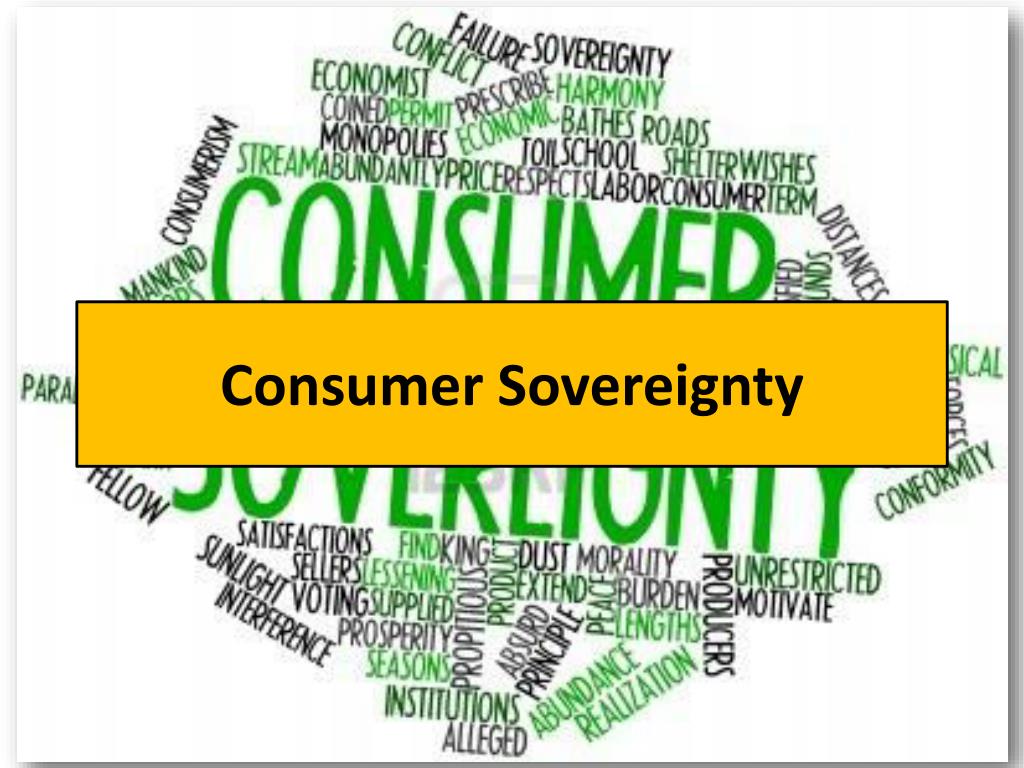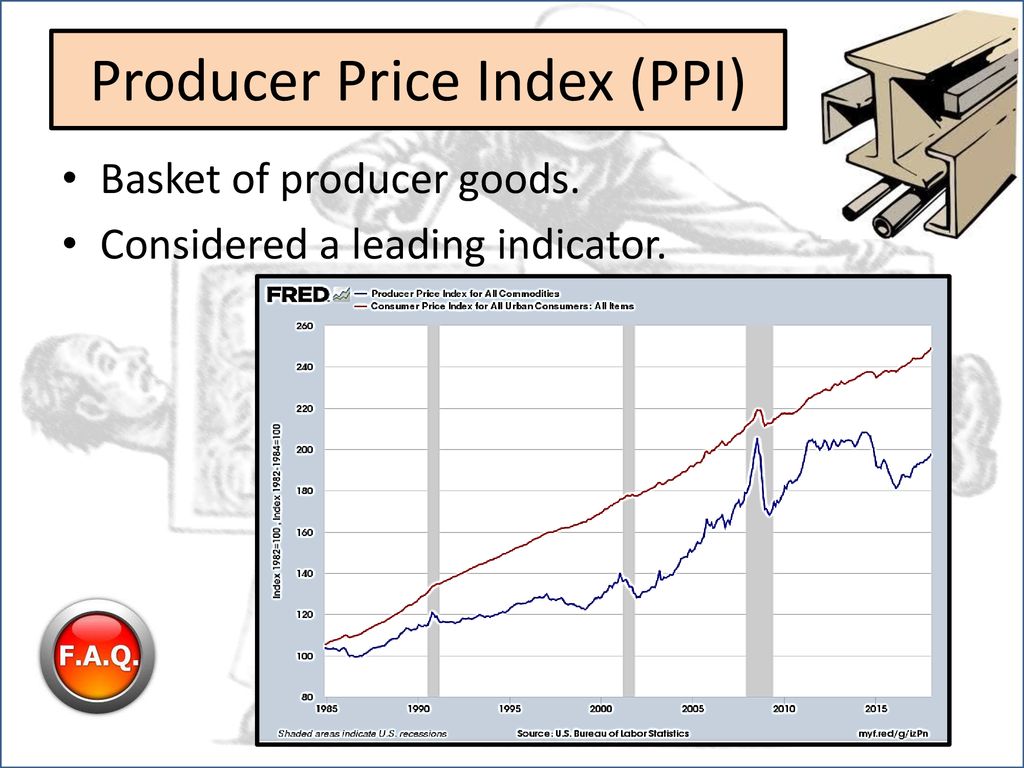
Consumer Sovereignty: The Power of the Buyer – How Your Choices Shape the Economy
Have you ever stopped to think about who truly holds the reins in the bustling world of commerce? Is it the massive corporations, the innovative entrepreneurs, or perhaps even the government? While all these players have their roles, at the heart of a free market economy lies a powerful, often underestimated force: Consumer Sovereignty.
In simple terms, consumer sovereignty means that the consumer is king (or queen!). It’s the idea that your choices, preferences, and spending habits directly dictate what goods and services are produced, how they are made, and even at what price they are offered. Every time you open your wallet, you’re casting a "dollar vote" that sends a clear signal to businesses.
This long-form article will dive deep into the concept of consumer sovereignty, exploring how it works, its immense benefits, its limitations, and why understanding it empowers you as a buyer.
What Exactly Is Consumer Sovereignty?
Imagine a vast marketplace where countless businesses are vying for your attention and your money. Consumer sovereignty suggests that in this market, it’s you – the consumer – who ultimately decides what succeeds and what fails.
The term "sovereignty" implies ultimate authority or power. So, consumer sovereignty refers to the idea that the power to determine the production of goods and services resides with consumers. Businesses produce what consumers demand, and if they fail to do so, they risk losing sales and eventually going out of business.
Think of it like this:
- You want a product: If enough people want a new gadget, a specific type of food, or a particular service, businesses will notice this demand.
- Businesses respond: To make a profit, businesses will start producing or offering what you want.
- Your "dollar votes" matter: When you buy something, you’re essentially voting for that product or service to continue existing and thriving. When you don’t buy something, you’re voting for it to disappear or change.
This constant feedback loop – where consumer demand shapes production – is the essence of consumer sovereignty.
How Does Consumer Sovereignty Work in Practice?
Consumer sovereignty isn’t just an abstract economic theory; it’s a dynamic process that plays out every single day. Here’s a closer look at the mechanisms through which it operates:
1. The Power of Demand and Supply
The fundamental laws of economics, demand and supply, are the backbone of consumer sovereignty.
- Demand: This is the quantity of a good or service that consumers are willing and able to purchase at various prices. When consumers express a strong preference for something (e.g., healthier snack options), their demand for it increases.
- Supply: This is the quantity of a good or service that producers are willing and able to offer for sale at various prices. Businesses respond to increased demand by increasing their supply of those healthier snacks.
If demand for a product falls, businesses will reduce its supply or stop producing it altogether. Conversely, if demand rises, they will ramp up production. This direct link ensures that resources are allocated to produce what consumers most desire.
2. Business Responsiveness and Innovation
In a competitive market, businesses are constantly trying to win over consumers. This means they must pay attention to consumer preferences.
- Market Research: Companies invest heavily in understanding what consumers want, need, and are willing to pay for. This includes surveys, focus groups, analyzing sales data, and monitoring social media trends.
- Product Development: Based on consumer feedback, businesses develop new products, improve existing ones, or create entirely new services. This drive for innovation is a direct result of consumer demands.
- Pricing Strategies: While businesses aim for profit, consumer willingness to pay often dictates price points. If a price is too high, consumers will simply not buy, forcing the business to reconsider.
3. The Role of Competition
Competition among businesses is crucial for consumer sovereignty to flourish. When multiple companies are vying for your dollar votes:
- Better Quality: Businesses strive to offer higher quality products and services to differentiate themselves.
- Lower Prices: They compete on price, often leading to more affordable options for consumers.
- More Choices: Competition fosters a wider variety of products and services, catering to diverse tastes and needs.
Without competition, a single company (a monopoly) could dictate terms, limiting consumer choice and reducing their power.
Real-World Examples of Consumer Sovereignty in Action
The history of commerce is rife with examples of consumers shaping industries. Here are a few prominent ones:
-
The Rise of Streaming Services:
- Before: Consumers were tied to cable subscriptions with fixed schedules and limited on-demand options.
- Consumer Demand: A growing desire for flexible, on-demand content, personalized viewing, and ad-free experiences.
- Result: Netflix, Hulu, Disney+, Amazon Prime Video, and countless others emerged, offering vast libraries accessible anytime, anywhere. Cable companies have had to adapt drastically, often offering their own streaming bundles. Physical media (DVDs, CDs) also saw a sharp decline.
-
The Dominance of Smartphones:
- Before: Separate devices for calls, cameras, music players, and internet browsing.
- Consumer Demand: A powerful desire for convenience, portability, and multi-functionality in a single device.
- Result: The smartphone revolution. Consumers voted with their dollars for devices that integrated all these features, pushing manufacturers to innovate rapidly with better cameras, faster processors, and more apps. Traditional camera and MP3 player markets shrunk dramatically.
-
The Shift Towards Eco-Friendly and Sustainable Products:
- Before: Environmental concerns were niche, and "green" products were often expensive or hard to find.
- Consumer Demand: Growing awareness and concern about climate change, ethical sourcing, and environmental impact. Consumers started demanding sustainable packaging, cruelty-free products, and ethically produced goods.
- Result: Major brands are now investing heavily in sustainable practices, offering plant-based alternatives, reducing plastic waste, and promoting ethical supply chains. Entire industries focused on renewable energy and sustainable living have boomed.
-
The Demand for Personalized and Customizable Products:
- Before: Mass production meant limited options and "one size fits all."
- Consumer Demand: A desire for unique products that reflect individual tastes and needs, from custom-made shoes and clothing to personalized gifts and tailored digital experiences.
- Result: Companies like Nike (with Nike By You), countless Etsy sellers, and even software companies offering customizable interfaces thrive. The rise of 3D printing further facilitates this trend.
These examples clearly illustrate that when enough consumers demand something new or different, the market responds.
The Benefits of a Consumer-Sovereign Market
When consumers hold the power, the entire economy often benefits in several significant ways:
-
1. Drives Innovation and Progress
- Businesses are constantly pushed to create better, more efficient, and more desirable products and services to capture consumer interest. This leads to technological advancements and improved living standards.
-
2. Enhances Product Quality
- To win over discerning consumers, companies must maintain high standards of quality. Poor-quality products are quickly abandoned by buyers, forcing businesses to either improve or exit the market.
-
3. Leads to More Competitive Pricing
- The race to attract consumer "dollar votes" often results in price wars among competitors. This benefits consumers by making goods and services more affordable.
-
4. Increases Consumer Satisfaction
- When the market is responsive to consumer needs, people get more of what they want. This leads to higher overall satisfaction and a feeling of empowerment among buyers.
-
5. Promotes Efficient Resource Allocation
- Resources (labor, capital, raw materials) are directed towards producing goods and services that consumers value most. This reduces waste and ensures that societal resources are used effectively to meet genuine demands.
-
6. Fosters Economic Growth
- The dynamic interplay of consumer demand and business supply creates a vibrant economy, encouraging investment, job creation, and overall prosperity.
Challenges and Limitations to Consumer Sovereignty
While consumer sovereignty is a powerful force, it’s not without its limitations and challenges. It operates most effectively under ideal conditions, which are not always present in the real world.
1. Information Asymmetry
- The Problem: Consumers don’t always have complete or accurate information about products, services, or their long-term effects. Businesses might withhold information or present it in a misleading way.
- Example: Complex financial products, hidden ingredients in food, or the true environmental impact of a product. If consumers aren’t fully informed, their "dollar votes" might not truly reflect their best interests.
2. Externalities
- The Problem: The production or consumption of a good might have unintended side effects on third parties who are not directly involved in the transaction. These are called externalities.
- Example: A factory produces goods that consumers demand (e.g., cheap clothes) but also pollutes the local river, harming the environment and public health. Consumers might vote for the cheap clothes, but they don’t directly "vote" for the pollution, which is a negative externality.
3. Monopolies and Oligopolies
- The Problem: When one company (monopoly) or a few companies (oligopoly) dominate a market, consumer choice is limited. These firms have less incentive to respond to consumer preferences or offer competitive prices.
- Example: Utility companies (electricity, water) in some regions operate as monopolies, giving consumers little choice. If there’s only one internet provider, they can offer slower speeds at higher prices without fear of losing customers.
4. Irrationality and Addiction
- The Problem: Consumers don’t always act rationally or in their own long-term best interest. Impulse buying, addiction (e.g., to harmful substances), or succumbing to aggressive marketing can lead to choices that are not truly "sovereign" in a beneficial sense.
- Example: Despite health warnings, demand for unhealthy fast food or sugary drinks remains high due to taste preferences, convenience, and marketing.
5. Government Intervention and Regulation
- The Problem: Governments often intervene in markets to protect consumers, ensure public safety, or address market failures. While necessary, these interventions can sometimes limit consumer choices.
- Example: Banning certain harmful products, imposing safety standards on cars, or regulating prices for essential services. These measures prevent consumers from making potentially dangerous choices, even if some might desire them.
6. Income Inequality
- The Problem: Consumer sovereignty is largely based on "dollar votes." If there’s significant income inequality, the preferences of wealthier consumers may disproportionately influence what is produced, potentially neglecting the needs of lower-income groups.
The Role of Consumers in Shaping the Market
Understanding consumer sovereignty isn’t just an academic exercise; it’s a powerful realization about your own influence. Every purchasing decision you make, no matter how small, contributes to the overall "vote" that guides businesses and shapes the economy.
Here’s how you can actively exercise your power as a sovereign consumer:
- Be Informed: Research products, read reviews, compare prices, and understand the implications of your purchases (e.g., ethical sourcing, environmental impact).
- Choose Wisely: Spend your money on products and services that align with your values and genuine needs.
- Provide Feedback: Share your experiences, both positive and negative, with businesses. This feedback loop is vital for them to understand what’s working and what isn’t.
- Support Businesses that Align with Your Values: If you care about sustainability, support eco-friendly brands. If you value fair labor practices, choose companies known for ethical production.
- Demand Change: If you’re dissatisfied with options available, vocalize your desires. Social media, petitions, and consumer advocacy groups can amplify individual voices.
Conclusion: Your Dollar, Your Voice, Your Power
Consumer sovereignty is a cornerstone of free market economies, demonstrating that the ultimate power to direct production lies in the hands of the buyer. It’s a dynamic, ongoing process where your purchasing decisions act as powerful signals, guiding businesses to innovate, improve quality, lower prices, and ultimately, satisfy your needs.
While challenges like information asymmetry and market imperfections exist, the fundamental principle remains: your choices matter. By being an informed, conscious consumer, you not only make better decisions for yourself but also contribute to a more responsive, efficient, and consumer-centric economy. So, the next time you’re about to make a purchase, remember: you’re not just buying a product; you’re casting a vote that helps shape the world around you.
Frequently Asked Questions (FAQs) about Consumer Sovereignty
1. What is consumer sovereignty in simple terms?
In simple terms, consumer sovereignty means that consumers have the main power to decide what goods and services are produced in a market economy. Businesses make what consumers want to buy, and if they don’t, they won’t succeed. Your spending choices are like "votes" that tell businesses what to produce.
2. Why is consumer sovereignty important?
Consumer sovereignty is important because it leads to:
- Innovation: Companies constantly create new and better products.
- Higher Quality: Businesses strive to offer excellent products to win customers.
- Lower Prices: Competition driven by consumer choice often leads to more affordable goods.
- Efficient Use of Resources: Resources are used to make things that people truly want.
- Greater Satisfaction: Consumers get more of what they desire.
3. Who benefits from consumer sovereignty?
Primarily, consumers benefit because they get a wider variety of higher-quality products at competitive prices that truly meet their needs. Businesses also benefit by being more responsive to market demands, which helps them stay profitable and grow. The overall economy benefits from efficiency, innovation, and growth.
4. Are there any limits to consumer sovereignty?
Yes, there are limitations. These include:
- Lack of Information: Consumers might not always have full or accurate information.
- Externalities: Production might cause harm (like pollution) that consumers don’t directly "vote" for.
- Monopolies: When there’s only one seller, consumer choice is limited.
- Irrationality: Consumers sometimes make choices that aren’t in their best interest (e.g., impulse buys, addictive products).
- Government Intervention: Regulations can limit choices, even if for good reasons (e.g., safety).
5. How can consumers best exercise their power in the market?
Consumers can best exercise their power by:
- Being informed: Researching products and understanding their impact.
- Making conscious choices: Buying products that align with their values.
- Providing feedback: Sharing opinions with businesses.
- Supporting ethical and responsible businesses: Voting with their dollars for companies they believe in.
- Demanding change: Using their collective voice to advocate for better options.




Post Comment